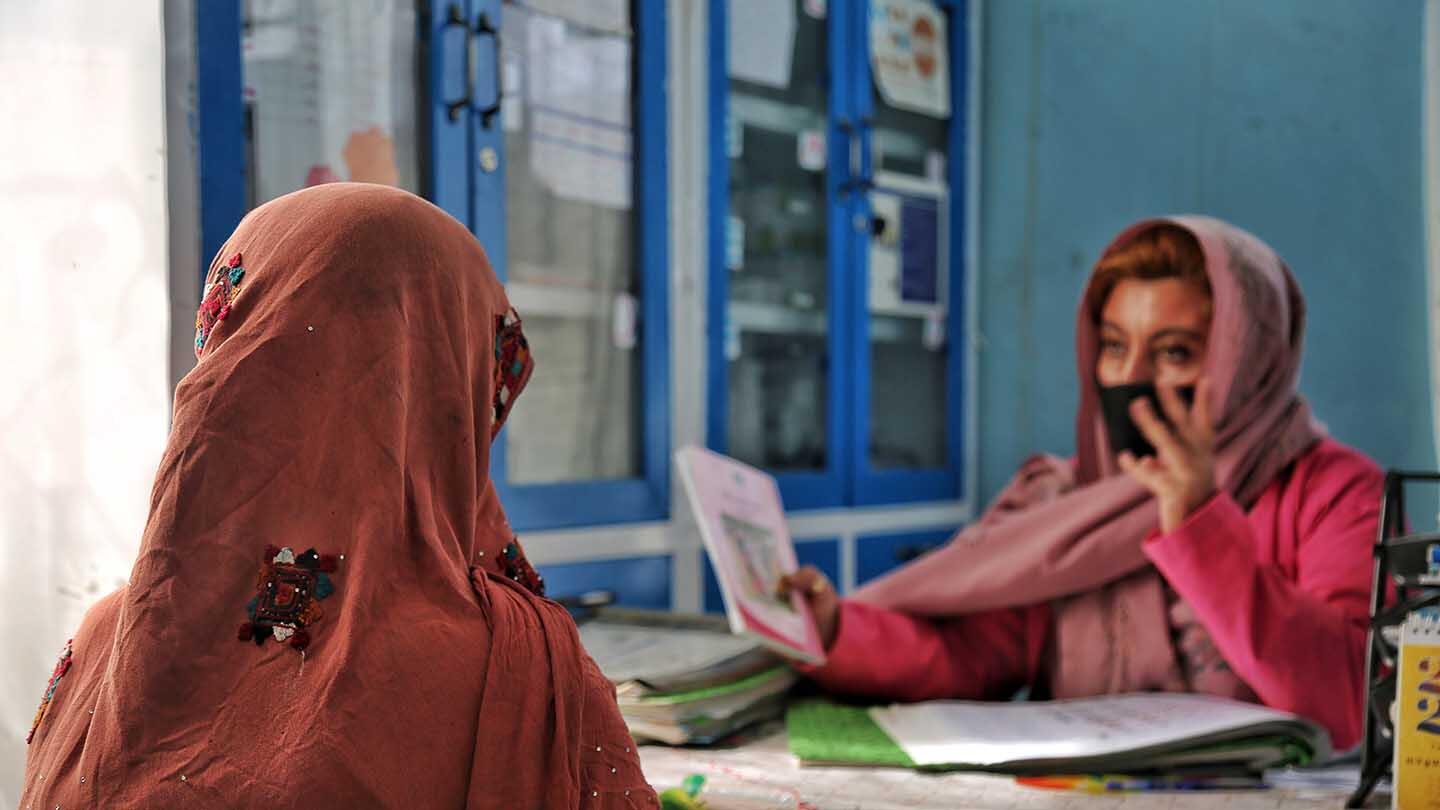Kandahar, Afghanistan – Firoza walks for hours, her steps heavy with exhaustion but filled with determination. At just 18, she has endured the heartbreak of losing a child and the agony of giving birth at home without medical support. But this time, she refuses to leave things to chance.
“I gave birth to a baby girl at home. She was alive for a few minutes, and then we lost her for reasons we do not understand. There was no healthcare worker present when I gave birth," she narrated. "After almost a year, here I am, pregnant again.”
She lives in Qazian village, deep in Spin Boldak district, where access to healthcare is almost impossible. The nearest health facility, Tarakazi Family Health House (FHH), supported by UNFPA with funding from the European Union, is a two-hour walk away—longer if there’s no transport. “Unless there are means of transportation available, it’s very difficult to come to this health facility, which is the closest to us,” she explained.
Her first two births took place at home, both filled with pain and complications. “I lost a lot of blood and it took me weeks to get well,” she recalls. “But I was told it was normal and every woman goes through this, so I accepted it.”
Her firstborn is a boy, now two years old. Her second pregnancy ended in the tragic death of her newborn daughter shortly after birth. Firoza blamed herself. “Maybe I was weak, maybe the pregnancies were too close together. I don’t know. But I accept what is written in my faith.”
Yet something within her changed after the painful loss of her second child because of the absence of a skilled birth attendant. She knew she had to seek professional healthcare this time, no matter the distance or the exhaustion she may have to endure. Both of my previous deliveries happened in the middle of the night. Everything happened all of a sudden, and I was not ready. This time, it will be different. I would crawl to come to this FHH if I had to, but my child will be born in a health facility, not at home.”
Firoza listened carefully to the women in her village who had made the journey to the FHH to deliver. They told her of their exhaustion, their aching bodies after the long walk. She became curious and wanted to see the FHH. When a group of women prepared to travel to the FHH for their children’s vaccinations, she joined them.
At the FHH, the midwife welcomed Firoza and registered her for antenatal care, ensuring she would receive the medical support she desperately needed.
With medical care secured for her pregnancy, Firoza left the FHH with confidence that she would be taken care of. The journey back would be long, but this time, she carried something else with her—hope.
Health facilities like the Tarakazi FHH are lifelines for women like Firoza. In remote communities where healthcare is scarce, midwives play a crucial role in saving lives, providing women not only medical support but also the knowledge and confidence to seek care before it’s too late.


